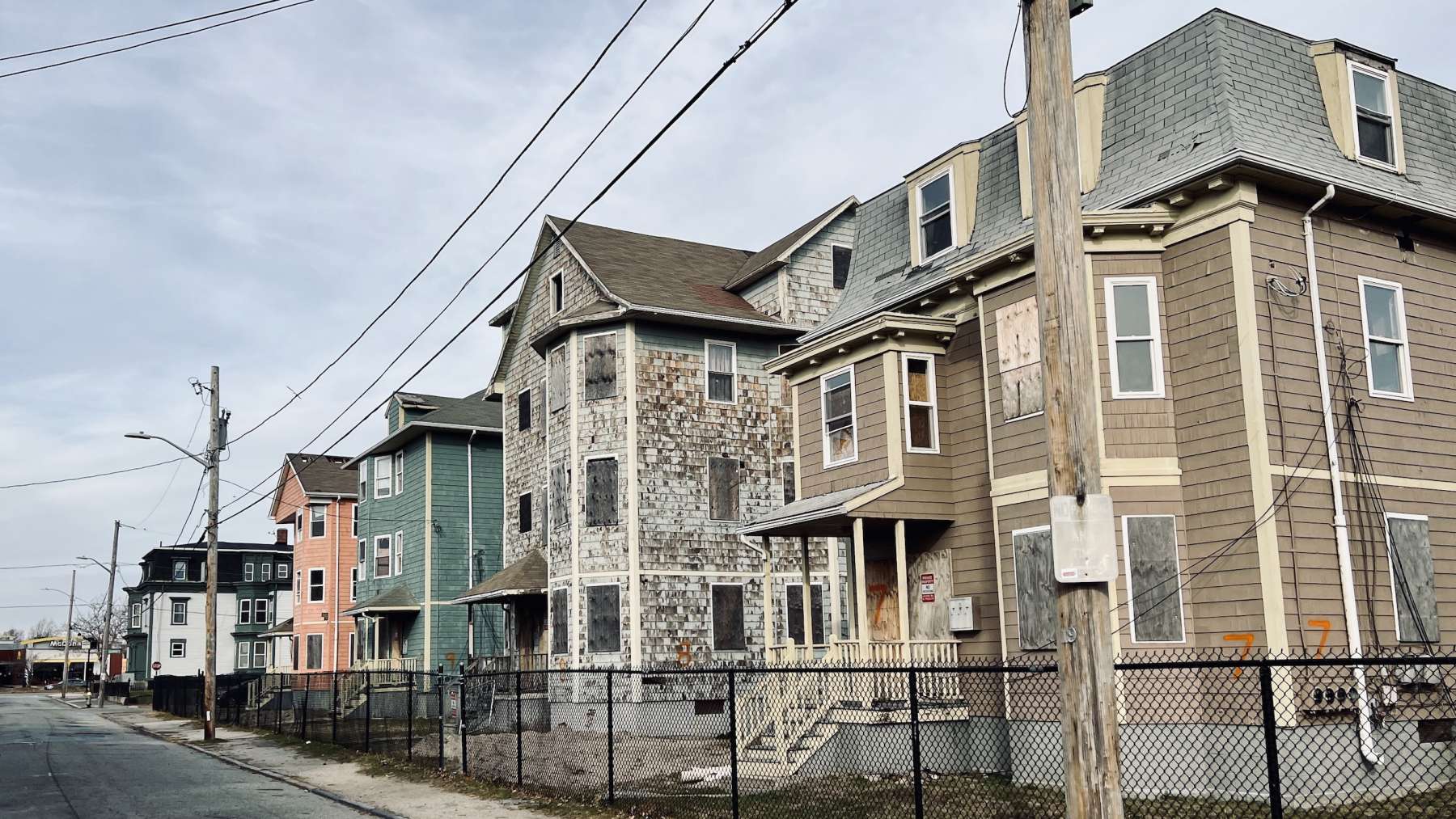Clara Hardy: Public housing in Rhode Island needs a complete overhaul
“Through my work as a social worker, I have seen that when the basic need of shelter is not met, it is nearly impossible for someone to obtain physical and emotional well-being. Our state government has ignored those in dire need of safe shelter, and thereby allowed a whole segment of our population to remain disempowered.”
January 7, 2022, 10:27 am
By Clara Hardy
As a social worker who has spent over 20 years doing home-based counseling with people who mostly live in public housing it has become quite clear to me that the current approach to housing has severe negative side-effects. First, there has been a disinvestment in public housing creating a backlog in maintenance in such housing resulting in unhealthy conditions for residents. My clients regularly see infestation of roaches, rats, and the infiltration of mold (see image below from one of my clients apartment) in these apartments which results in high rates of asthma and other poor health outcomes.
Worse still, non mixed-income public housing concentrates poverty in particular locations which directly contributes to racial segregation, higher crime, poor educational outcomes, drug abuse, gang violence and a host of other problems.
Some of my clients have described their experiences in public housing in the following ways: “it is a place where people go to die” and “I feel stuck here, with no options of ever leaving the projects.” Applicants for public housing are driven by economic desperation, not a desire to live in run-down apartments in dangerous neighborhoods.
Yet the waitlist to get into public housing is astronomical and years long. The same is true for other avenues for low-income, affordable housing here in Rhode Island. It takes years to get a Section 8 voucher and when you do, many landlords won’t rent to people on Section 8 (despite the recent law passed in 2021, making source of income discrimination illegal).
One problem is that there are not enough low-income, affordable rental units to meet the demand. Over 22% of renter households in Rhode Island pay over 50% of their gross income on rent. Meanwhile, the state continues to invest in luxury housing units in downtown Providence such as the Fane Tower. So, what should be done?
There is a pressing need for policy makers to consider new ideas for delivering affordable housing. One solution that has been successful in countries outside of the United States is large-scale municipal housing, built and owned by the state. “An over-reliance on the for-profit private sector has led to underinvestment in communities which produce less profit and to state subsidies to developers and landlords, simply to maintain some sense of a social fabric.” Yet, continuing to invest in private-sector to solve the issue of lack of affordable housing has been an expensive band-aid which has been completely inadequate for ameliorating the problem.
One can look at the success in Vienna where municipal housing (social housing) is not only part of public policy but a part of the political will. No less than 80% of the country’s population is eligible to receive social housing by their income. The cost-burden is dispersed among tenants as there includes market-rate units interspersed amongst the building. Higher income tenants therefore subsidize lower income tenants rent.
Social housing is a housing policy that needs to be adapted here in RI, to help solve the housing crisis. It is similar to the “public option” for healthcare, less reliance on the private sector and more help from the government. These apartments would be constructed by local union labor, would be high-quality, energy-efficient and affordable across economic status. Some options for funding could be through a mixture of low-interest loans and grants to housing authorities.
Rhode Island, like so many states, has a low-income and affordable housing crisis. There isn’t enough affordable housing to meet the demand, causing sky-rocket rents that only some can afford. This has a devastating impact not only on no to lower income people, but also on the middle-class resulting in people being pushed into homelessness, folks choosing between paying rent or feeding their family, and the maintenance of cycles of poverty with no opportunity for upward mobility.
Through my work as a social worker, I have seen that when the basic need of shelter is not met, it is nearly impossible for someone to obtain physical and emotional well-being. Our state government has ignored those in dire need of safe shelter, and thereby allowed a whole segment of our population to remain disempowered.
Clara Hardy is a social worker from North Providence.
She is running for State Representative in District 55.






